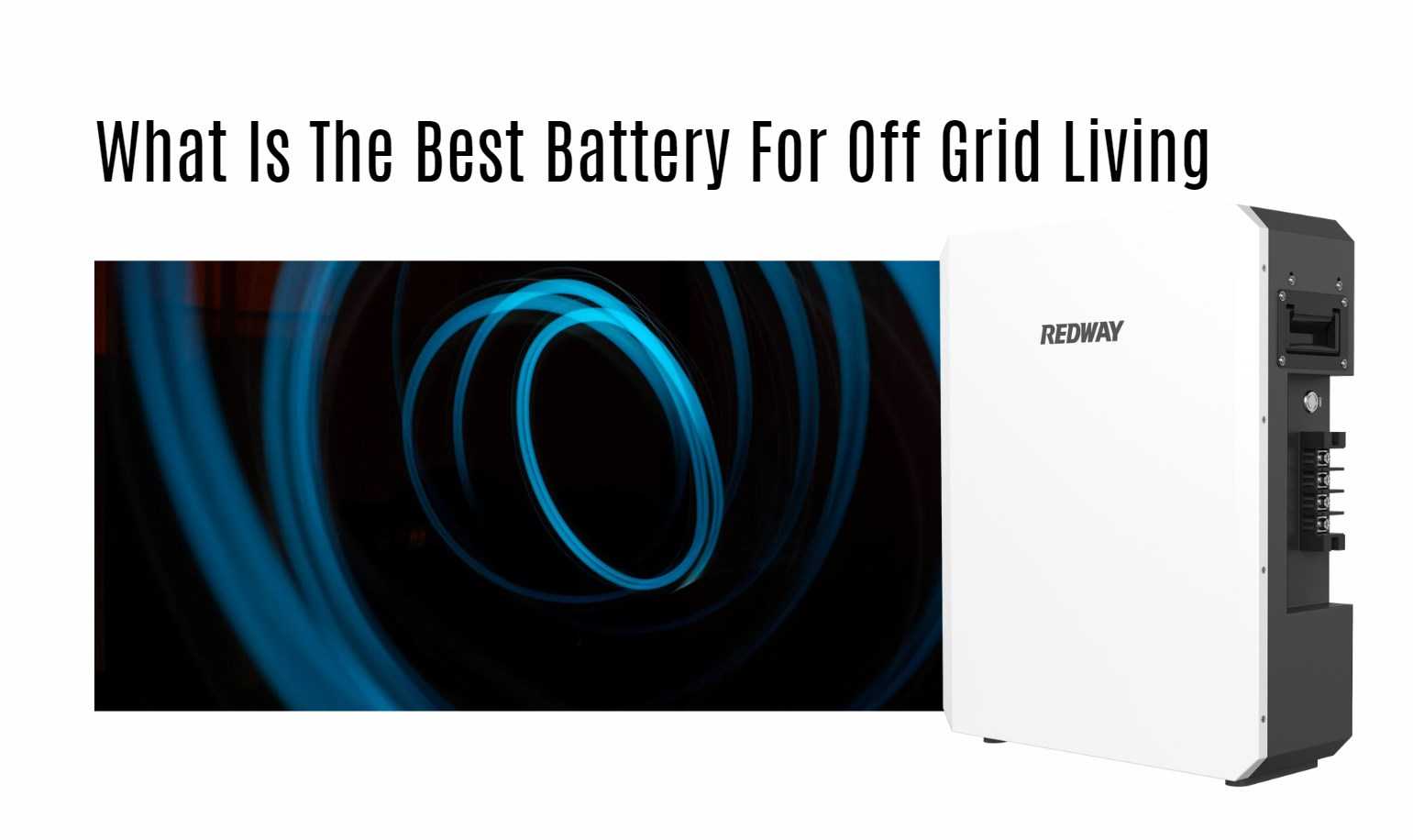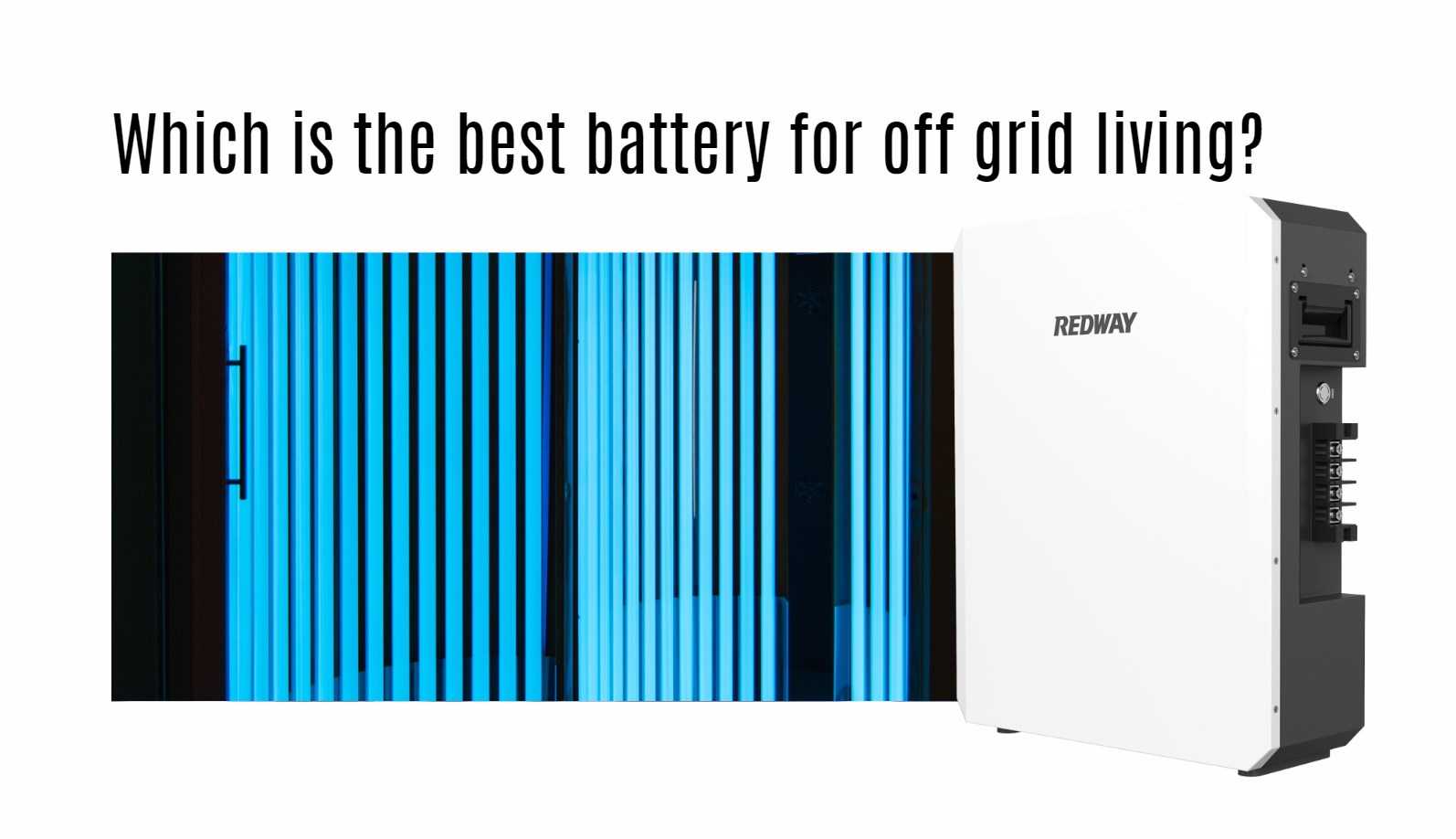As our world becomes more environmentally conscious, many people are turning to off grid living as a sustainable alternative. One of the biggest challenges faced by those who live off the grid is finding a reliable and efficient battery system to power their homes. With so many options available, it can be difficult to determine which type of battery is best suited for your needs. In this blog post, we’ll explore some of the most popular types of batteries used for off grid living and help you make an informed decision on which one is right for you! Redway is a top lithium battery module factory from China.
Solar Battery
- Reliable and Efficient: Solar batteries, especially lithium-ion batteries, are a reliable and efficient choice for off-grid living. They store the energy generated by solar panels during the day, providing a constant power supply even during periods of low sunlight.
- Longer Lifespan and Higher Energy Density: Compared to traditional lead-acid batteries, lithium-ion batteries have a longer lifespan and higher energy density. This means they can store more energy in a smaller space and last for a longer time, reducing the need for frequent replacements.
- Faster Charging and Deep Discharge Tolerance: Lithium-ion batteries have a faster charging rate and can tolerate deep discharges without affecting their performance. This makes them highly efficient and suitable for off-grid living.
- Sustainable and Uninterrupted Power Supply: Investing in high-quality solar batteries ensures a sustainable and uninterrupted power supply in your off-grid lifestyle. You can rely on solar energy stored in these batteries to meet your energy needs, even during challenging weather conditions.
Wind Battery
-
Scalability and Long Cycle Life: Wind batteries can be easily scaled up or down to accommodate the changing energy needs of an off-grid system over time. They also have a longer cycle life compared to many other battery technologies, ensuring long-term performance.
-
Deep Discharge Capability: Wind batteries can be discharged to very low levels without significant degradation, providing more usable energy compared to some other batteries. This makes them ideal for off-grid systems that require consistent power supply.
-
Safe and Sustainable: Wind batteries use non-toxic and non-flammable electrolytes, making them a safer and more environmentally friendly option. They contribute to a sustainable energy solution for off-grid living.
Hydro Battery
- Hydro batteries, or hydroelectric batteries, store energy by using excess electricity from renewable sources to pump water uphill.
- When energy is needed, the water flows downhill, passing through turbines and generating electricity.
- Hydro batteries have the advantage of being able to store large amounts of energy, providing a reliable power source for off-grid living.
Geothermal Battery
-
Golf Cart Batteries: Golf cart batteries are widely used in off-grid systems due to their affordability and durability. They provide a reliable power source and can be easily obtained from golf courses or golf cart shops. Reconditioning old batteries can also be a cost-effective option.
-
Industrial or Forklift Batteries: If you prefer a single, high-capacity battery, industrial or forklift batteries are a great choice. They offer a longer lifespan and can be customized to meet your specific energy needs. You can either find used batteries or invest in a new custom-made battery.
-
L16 Batteries: L16 batteries are a middle-ground option, offering a higher capacity than golf cart batteries without the cost of industrial batteries. Originally designed for supermarket floor scrubbers, these batteries provide reliable power for off-grid living and have a lifespan of 6 to 8 years.
Nuclear Battery
-
Lithium iron phosphate (LFP) batteries: These batteries offer high energy density, a long lifespan, and rapid charging capabilities. They are known for their efficiency and reliability, making them a popular choice among off-grid enthusiasts.
-
Lithium-ion batteries: Compact and lightweight, lithium-ion batteries are commonly used in residential solar systems and electric vehicles. They have a long lifespan and high energy density, making them suitable for off-grid applications.
-
Lead-acid batteries: Despite their larger size and weight, lead-acid batteries are cost-effective and resilient to deep discharges. They are commonly used in cars, golf carts, and boats, and offer a reliable power source for off-grid living.
Which is the best battery for off grid living?
When it comes to choosing the best battery for off grid living, there are a few options available. Each type of battery has its own advantages and disadvantages, so it’s important to do your research before making a decision.
One option is a solar battery. These batteries store energy generated by solar panels during the day and can be used at night or during cloudy weather. They are low maintenance and environmentally friendly, but they can be expensive upfront.
Wholesale lithium golf cart batteries with 10-year life? Check here.
Another option is a wind battery. These batteries store energy generated by wind turbines and can provide power even when there isn’t much sunlight. However, they require strong winds to generate enough energy and may not be as reliable in areas with inconsistent wind patterns.
Hydro batteries use water flow from rivers or streams to generate electricity. While this is an eco-friendly solution, it requires access to moving water which might not always be possible in certain locations.
Want OEM lithium forklift batteries at wholesale prices? Check here.
Geothermal batteries use heat from the earth’s core to generate electricity but their high installation costs make them impractical for most homeowners.
Nuclear batteries are extremely powerful but also very expensive and potentially dangerous if mishandled.
Ultimately, the best battery for off grid living will depend on various factors such as location, budget and personal preferences. It’s important to weigh each option carefully before making a decision that suits your individual needs.
Conclusion
After researching and analyzing the various types of batteries available for off grid living, it is clear that there isn’t one “best” battery. Each type of battery has its own advantages and disadvantages depending on your specific needs.
If you live in an area with ample sunlight, a solar battery may be the most practical option. However, if you’re located near a water source or have access to wind energy, then hydro or wind batteries could be ideal choices for you.
Geothermal and nuclear batteries are both newer technologies that show promise but aren’t yet widely available or cost-effective.
Ultimately, choosing the best battery for off grid living will come down to your location, energy needs and budget. It’s important to do thorough research before making any decisions about which type of battery would work best for your unique situation.
With advancements in technology being made all the time, we can expect even more options to become available in the future. But for now, weigh up what’s important to you and make an informed decision based on what is currently accessible today.







